- Home
- Lost Attractions
- Rattlesnake Florida
RATTLESNAKE FLORIDA
By Mike Miller July 4, 2025
There is an area in Tampa around the Gandy bridge that is still known as "Rattlesnake" by old timers with good memories.
Rattlesnake is one of the many lost towns and tourist attractions that once dotted the Sunshine State—small communities and businesses born from big dreams, only to vanish with time.
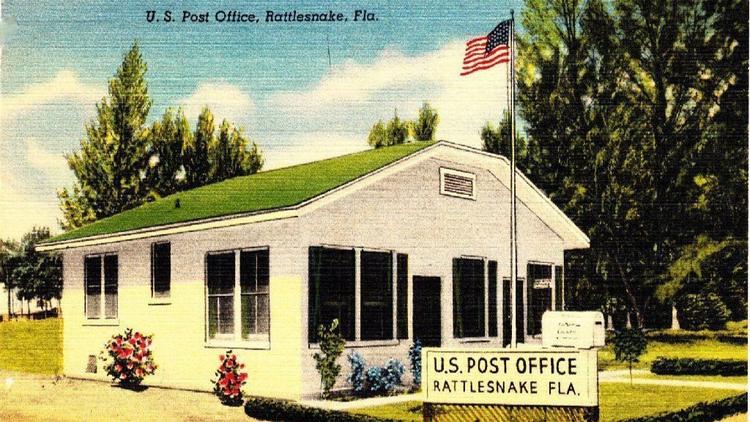 Rattlesnake Florida Postcard
Rattlesnake Florida PostcardFounded by a bold entrepreneur named George K. End, Rattlesnake had a unique identity rooted in one of Florida's more fearsome creatures: the Eastern diamondback rattlesnake.
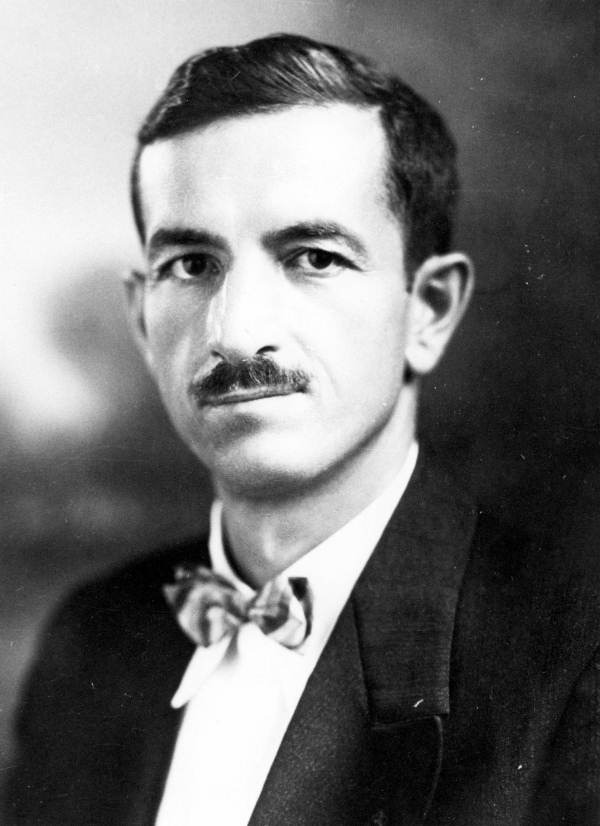 George K. End
George K. EndGeorge K. End was a World War I veteran and taxidermist who came to Florida in the early 1930s.
Originally from Wisconsin, End had a background in biology and business and first set up his rattlesnake operation near Arcadia, Florida.
There, he began experimenting with the commercial use of rattlesnake meat and venom, aiming to create a profitable enterprise centered around these reptiles.
He was one of the earliest—and perhaps only—entrepreneurs in Florida to build a business around the commercial harvesting and processing of rattlesnakes.
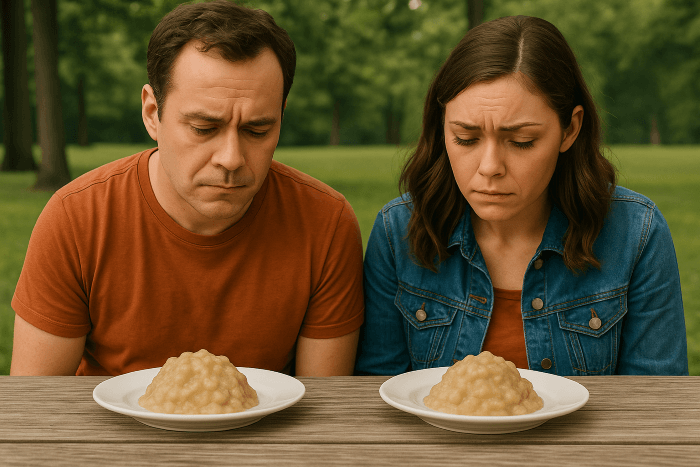 Dubious Couple Contemplating Their Food
Dubious Couple Contemplating Their FoodHe marketed the meat as a novelty food, often calling it “chicken of the glades,” and claimed it was both tasty and nutritious. The canned meat was sold locally and shipped to curious customers elsewhere in the country.
George End reportedly learned that rattlesnake meat was edible from Native American and pioneer sources who had long known the meat was safe and even considered a delicacy in some circles.
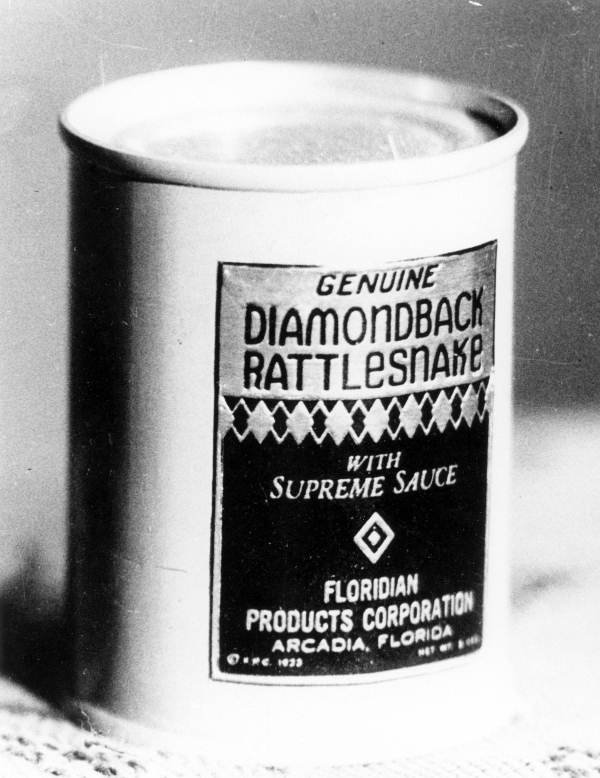 Can of Diamondback Rattlesnake
Can of Diamondback RattlesnakeFascinated by reptiles and intrigued by their potential uses, End began experimenting with rattlesnake processing—skinning them for leather goods, extracting venom for supposed medicinal uses, and cooking the meat.
He is said to have first tried eating rattlesnake himself out of curiosity. Finding it surprisingly palatable—comparable to chicken or fish—he saw a unique business opportunity.
His early success led him to create recipes and preservation methods, eventually culminating in a commercial cannery where the meat was processed, cooked, and sealed in tins with seasoning.
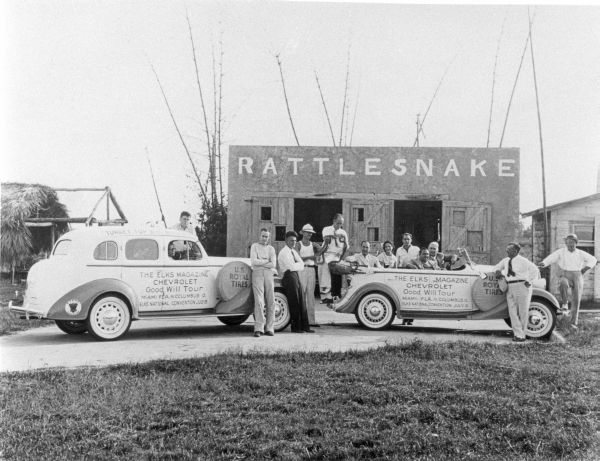 Rattlesnake Cannery in Arcadia, Florida
Rattlesnake Cannery in Arcadia, FloridaBusiness was good, so End wanted to increase his market size, have better access to tourists and shipping routes than was available in Arcadia.
By 1936, End moved to the outskirts of Tampa, near Gandy Boulevard and 4th Street South, an area then considered remote.
The Interbay peninsula in Tampa was heavily populated with Eastern diamondback rattlesnakes, with pine and palmetto thickets providing an ideal habitat.
Historical accounts note thousands of rattlesnakes in the area, making it a prime location for End’s snake-hunting operations, similar to the snake-rich environment he encountered in Arcadia.
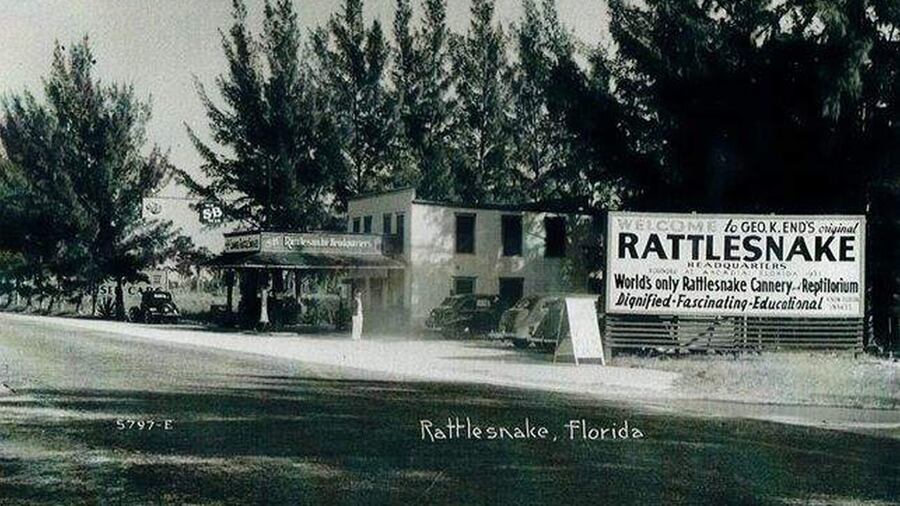 Early View of Rattlesnake Florida
Early View of Rattlesnake FloridaThere, he established the small town of Rattlesnake, complete with a post office, general store, gas station, restaurant, cannery, and his most ambitious venture: a rattlesnake meat processing plant.
End’s operation claimed to can and sell rattlesnake meat as a novelty food, advertise the medicinal value of venom, and offer reptile-based tourist attractions.
Curious travelers could stop and see live snakes or purchase souvenirs made from rattleskin.
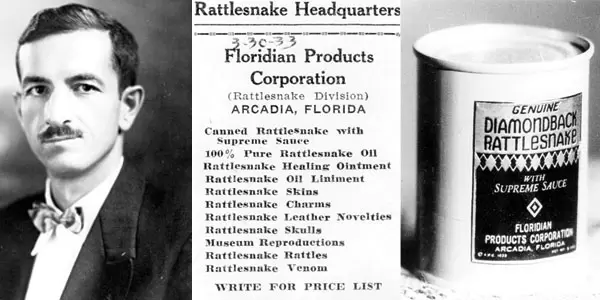
Rattlesnake was not a traditional town with homes and schools; it was more of a self-contained outpost that marketed itself as a quirky roadside stop.
The post office, bearing the name “Rattlesnake, Florida,” operated briefly from 1936 to 1944, adding a stamp of legitimacy to the location.
While the idea was attention-grabbing, the reality of selling rattlesnake products during the Great Depression proved less sustainable.
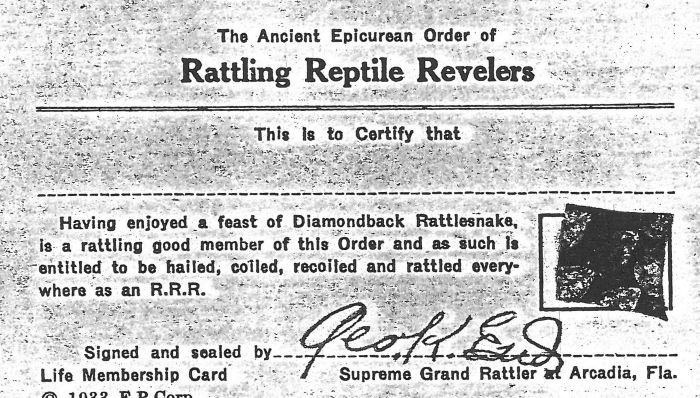 Membership Card
Membership CardGeorge K. End died under tragic circumstances in 1944. The most widely accepted account is that he was accidentally killed by a rattlesnake bite—a bitterly ironic end for a man whose livelihood revolved around handling venomous snakes.
Without End’s leadership, the rattlesnake cannery quickly closed, the post office shut down, and the area was eventually absorbed into the expanding urban sprawl of Tampa and St. Petersburg.
His death marked not just the loss of a man, but the disappearance of one of Florida’s most eccentric roadside ventures.
 Rattle Snake w Eat More Chickn Sign
Rattle Snake w Eat More Chickn Sign
Florida is the fastest-growing state in the United States and also the fastest-changing. If you see anything in this article that has changed or is in error, please let me know.
Thousands of Florida fans subscribe to our free daily Ezine, Florida Heritage Travel and we have 130,000 followers on Facebook.
By Mike Miller, Copyright 2009-2026
Florida-Back-Roads-Travel.com
Florida Back Roads Travel is not affiliated with or endorsed by Backroads, a California-based tour operator which arranges and conducts travel programs throughout the world.
